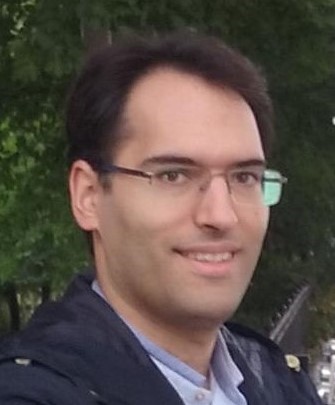José Correia
Researcher & Professor, Porto, Portugal

José A.F.O. Correia, born in 1984 in Peso da Régua, Portugal, is a Researcher of the INEGI/UP and CONSTRUCT/FEUP (Portugal). He is also an Invited Professor at the structural mechanics section/ISISE in the Civil Engineering Department of the University of Coimbra. Since 2018, he is a Guest Teacher at the Engineering Structures Department of the Civil Engineering and Geosciences Faculty of the Delft University of Technology (Netherlands). He obtained the degrees BSc (2007) and MSc (2009) in Civil Engineering by the University of Trás-os-Montes e Alto Douro. He is a specialist in steel and composite construction by the University of Coimbra in 2010. He is PhD in Civil Engineering by University of Porto in 2015. Since 2008, he has lectured several unit courses, such as: - Steel Structures; - Timber Structures; - Structural Engineering Design; - Fatigue and Fracture Mechanics; - Steel Structures for Offshore and Renewable Energies; - Design of Bridges; and, - Offshore Structures Design. He is co-author of more than 150 scientific journal papers in the most relevant scientific journals devoted to structural integrity, fatigue and fracture of engineering materials and structures, 200 proceedings in international and national conferences, congresses and workshops, 6 book chapters and 5 books. He was/is a supervisor of doctoral and master’s dissertations in the areas of Civil and Mechanical Engineering (Structural Mechanics) — 15 Ph.D. (2 completed; 13 ongoing) and 34 MSc. (30 completed; 4 ongoing). He was/is also a team member of the organization and participation in approved national (Portugal) and European research projects (17 research projects, >6.500.000,00€). He was/is the coordinator of 3 R&D projects and consulting services (university extension) budgeted in 300.000,00€ and 100.000,00€, respectively. In business activities, he was involved in approved investment projects budgeted in more than 720.000,00€. His current research interests are the following: a) Behaviour to fatigue and fracture of materials and structures (steel and alluminium, riveted and bolted connections, pressure vessels, old steel bridges, wind turbine towers, offshore structures); b) Probabilistic fatigue modelling of metallic materials (including statistical evaluation, size-effect, cumulative damage); c) Probabilistic design of glass structural elements; d) Mechanical behaviour of materials and wooden structures (connections and characterization of ancient structures); e) Mechanical and chemical characterization of old mortars and masonry structures.


